#one of the other interns at my practicum is leaving next week
Text
my love language is acts of service and gift giving, but i have major social anxiety, so the combination of these two things is that basically i LOVE doing nice shit for people but then i nearly crumble from how anxious i get doing the nice thing and then i talk myself into and out of and then in to and then out of it and then back into and then out of and then int---
#one of the other interns at my practicum is leaving next week#and tomorrow is the last day we all have together#so i got him a card and had everyone sign it#and i'm gonna bring in donuts#but then im like#OH MAN IS THAT WEIRD ARE PEOPLE GONNA THINK ITS WEIRRD WHAT IF PEOPLE FEEL LEFT OUT#NOW I GOTTA FIGURE OUT HOW TO DO THIS FOR EVERYONE#EVEN THO ILL BE LEAVING AT THE SAME TIME AS EVERYONE ELSE AND#WHAT IF HE THINKS ITS WEIRD#WHAT IF ITS TOO MUCH#my brain. is. exhausting.#/ tbd.
13 notes
·
View notes
Text
អរគុណច្រេីន (Arkun jraun. Many thanks!)
Kicking off a fun month of November, the adventure continues... this has been an amazing month of learning about WASH, discipleship, and fellowship. I have so much to be thankful for, and just one more month of work in the country of កម្ពុជា (kom-pu-jie) before I head back to the U.S. for Christmas. Happy soon Thanksgiving to all!
Speaking of being thankful, I'll give you all one more thing to be thankful for and let the pictures and videos on this blog post speak for themselves. And for those rare few of you who actually like hearing me ramble on and on about life, I'll include some thoughts at the bottom ;)



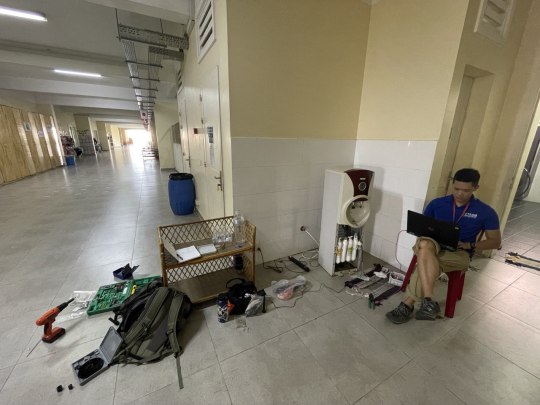

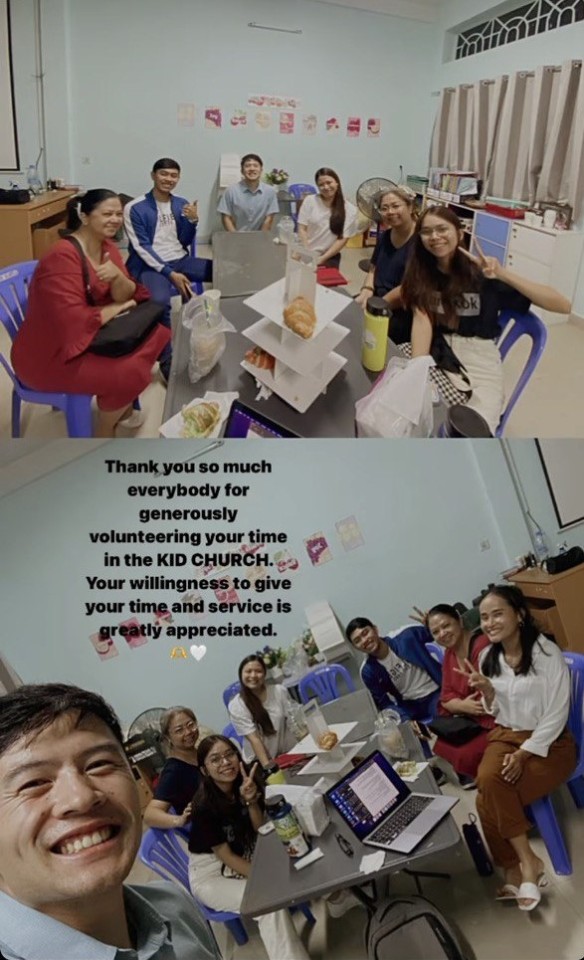
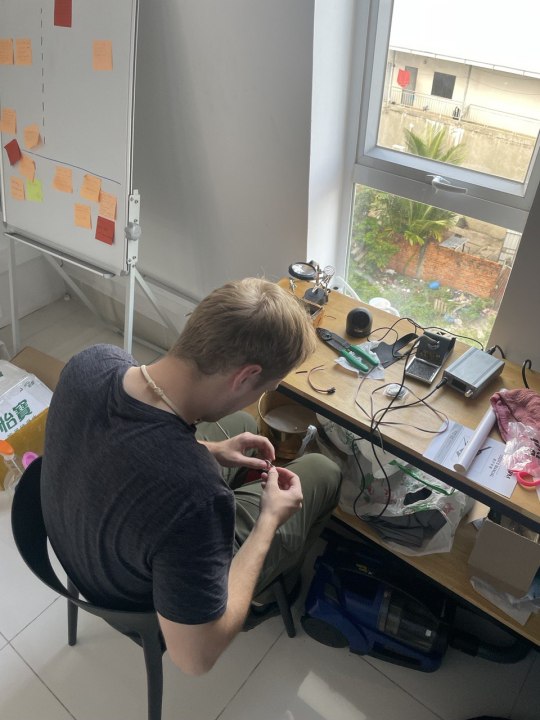
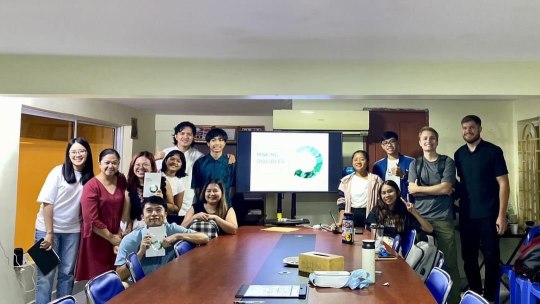
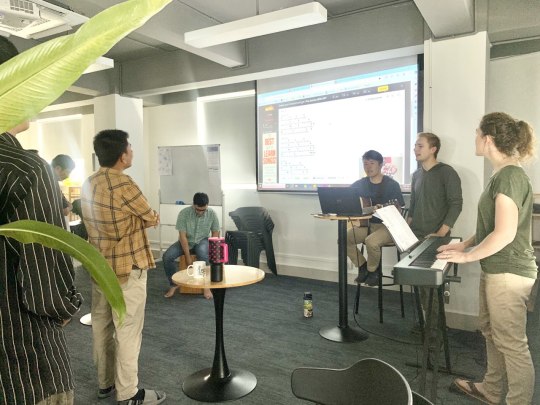

Wowly Wow!!! I'm in a little bit of a daze from just how much has been going on, but I'll summarize a few of the big events for you.
EMI: Continuing to work and prepare for the upcoming Groundwater Practicum, an event EMI Cambodia is hosting where water engineering professionals from the U.S. and Australia are coming to speak and educate about water quality, treatment, contaminants, drilling wells, and so on. Our WASH team objectives are to 1) learn more about groundwater and treatment from these experts, 2) help and empower other local NGOs in groundwater, and 3) provide opportunities for local students to learn and earn a certificate for completing the practicum.
I helped with installing some flow gauges at Hope International, a private Christian school. We hope to measure the water usage at the school to both aid them and also prepare the flow gauge devices for use in other applications if we want to track water usage for projects we've set up.
Also, I led worship for our office on Friday! We sang 4 songs (2 English and 2 Khmer), and what's even greater is I sang on-key most of the time. The nice thing about leading worship in the office is the crowd sings louder than the leader- so even if the leader just mumbles the words on rhythm, everyone sings with no problem.
Every Nation Church Cambodia: This month, I attended a church discipleship class held by local missionaries. Of course, I have had amazing training in discipleship in my time at Dawn Christian Academy and California Baptist University, but there is always something new to learn. Plus, I was able to put in some great input on questions from other students in the class, questions like:
What do I do when I share the gospel and people point out my flaws?
How should I react when I share the gospel and my friend rejects the gospel?
For the sake of keeping this post short, just ask me if you are curious about how I helped answer these questions. There are tons of gospel sharing conversations caused by members of this church as I am so excited about it.
I also have continued to help with kids' ministry and participated in a meeting about discussing our ministry's effectiveness in making disciples, teaching the gospel, and better ways we can work to reach our entire community through the kids' ministry.
Overall: October was an incredible month of growth and making many new friends while developing current relationships. I also was so excited to have my sister Hannah and brother-in-law Tim visit from the U.S.! It was great seeing family and familiar faces. Hard to believe that in only one more month, I'll be back to celebrate Christmas with everyone. WAHOO!
Thank you for staying tuned for yet another update. I'm truly grateful for the support everyone has shown me before and throughout the trip, checking in on me and praying for me. Your support has been invaluable and kept me going even when things were hard. Please don't stop yet though! Next up this month, I have several things to look forward to doing and achieving:
Last 5 weeks of working in the office before heading back.
The Groundwater Practicum
Siem Reap Half Marathon
Company retreat in December right before I leave.
ព្រះអងប្រទានពរនាកទាំងអស់គ្នា។
Preah-Ong bratien po neak teang-os knea!
God bless you all!
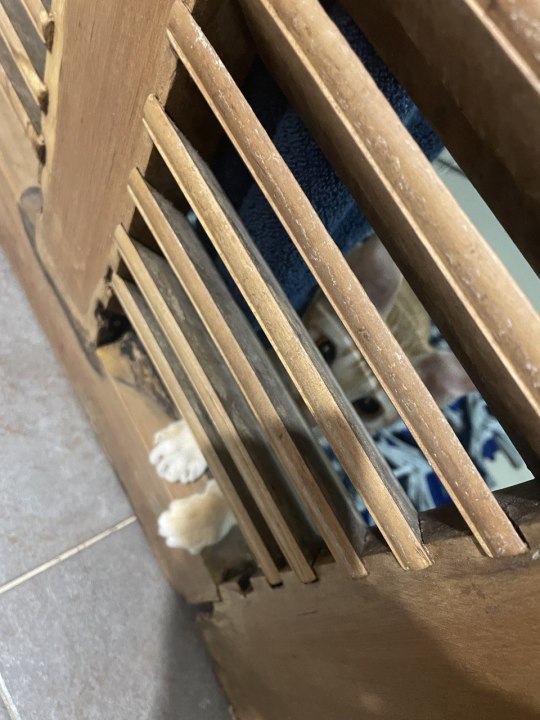
0 notes
Text
A huge sigh of relief/The only thing that’s ever stopping me is me.
I feel so much lighter.
I woke up at 6:30am today. Like I should have been for weeks, but today I finally actually did it and had plenty of time lounging in bed and prepping for my supervision. The drive to practicum was somehow one of the least stressful (on this day of extreme stress), and I didn’t feel anxious. I’ll take it as progress. Today is the day I am observed at my practicum site by one of my professors AND I hear back results of my counseling center practicum interview.
And then I went in with my supervisor for an individual session. I was nervous because this felt like an evaluation. I was terrified. Imposter syndrome was at its highest and I was sure this would be the moment my supervisor realizes how incompetent I am.
I realized I have been, for weeks and probably for my whole experience, absolutely undervaluing myself.
We saw an individual in the inpatient crisis unit, and I did my thing. I walked up to the unit, saw my usual MHA isn’t there who helps me select clients, so I asked a nurse who recognized me. And she was amazingly helpful in recommending someone (and my supervisor emphasized this to me later on, and I didn’t even consider that wow, me, an art therapy intern, was recognized by staff and adequately helped). I approached a client who was super excited for art and open to my supervisor sitting in on our session.
And it was a typical session! Which is good. It ended a bit early, but my supervisor actually said that was good. And she was so supportive of me after the session. She said that it takes a lot to challenge myself to walk onto an inpatient unit and tell the nurses that I’m open to see anyone. (I hadn’t even realized that was a big deal?) And then she said that I was super attentive to my client’s needs and I did a really solid directive with her.
Only after all this time, she let me know that typically 1st year grad students in my program don’t take on individual clients in their first practicum. She let me do it and didn’t say anything and this is why. She trusted that I could do it. She told me that usually 1st year practicum students shadow the 2nd years and sit in on groups. I have groups AND individuals. Then we met together with my on-site supervisor, a clinical psychologist, who just praised my work. He said that in the past some interns have been very timid, but I’m “bold” (!!!!) and “insightful” and rose up to the challenge to take on many more clients than necessary.
This whole time, I thought I was just struggling to get by. I thought I didn’t know what I was doing. I thought that what I was doing was just what was expected of me. I have come to learn that I was just doing above and beyond, though. My supervisor told me that the way I comfortably can walk into the inpatient unit and see any client is a task that 3rd practicum students do just before they graduate the program. I am in tears. I am so relieved.
And my session actually went well. I was validating and I didn’t stumble. And my client happened to have a masters in social work (???? woah that never happens) and she specifically told my supervisor as we were leaving the session, “she’s great!! she has a really soothing voice.”
Simple things, I need to give myself more credit for.
In all this, I’m much more confident in how I’m doing.
This greatly helped my morning as immediately afterward I was notified that I was rejected from the next practicum site I wanted. It hurts. I’m disappointed but I think I’m also somewhat relieved. There were some significant cons to it. And well, I have 3 other options for sites as well that are just more opportunities for me to keep refining my therapeutic skills and do important work.
2 notes
·
View notes
Text
Life in Ghana 5 (8/30 - 9/6): New People Are Here!
Beginning my fifth week, I am finally not alone!
On Monday, Allie and Natalie arrived at the research center. They are undergraduate seniors in my program. Just some context: The undergrads have a three-step practicum program: 3rd year spring is an internship at a community-based organization in DC, 4th year fall is this practical experience abroad, and 4th year spring is an internship in an international organization in DC. So great, right? Anyway, here's us in front of the newly built guest house where I also moved yesterday.

There aren't a lot of stuff yet but the contractors have been slowly adding the TV, appliances, etc. I'll take pictures inside the house once everything is settled in.
Fun fact about Allie and Natalie: They are part of the Georgetown rowing team! They need to train everyday so they brought jump rope and TRX with them and they came up with a workout routine we will be doing everyday (yes, I will train like a rowing team player for the remaining 7 weeks - but probably do it every other day). Day 1 was yesterday and my body is a bit sore but I am happy I am getting some physical activity again. For the past four weeks I have been trying out Insanity again but I always have to take a break every 3 to 4 days because my body would hurt so much the next day.
Honestly I am happy I am not living alone anymore. The new guest house has four rooms, and we each get a room each with our own bathroom. So in short, our living arrangement here is so much better and so much cheaper than when we were back in DC.
Last night, the power went out for about an hour but thankfully Natalie brought cards with her and I learned two new card games - Presidents (which is like Pusoy Dos but not quite) and Five Crowns.

This week we also have our new office space! We’re sharing Room 6 of the research center. So this will be my final, final office space until I leave at the end of October.

This week, I believe we are attending a wedding of one of the senior research staff! Life in Ghana has been exciting so far!
2 notes
·
View notes
Text
Bionca T. (April 13th, 2017
7 hrs. this week/78 hrs. for the semester
Part 1:
Over the last two weeks at my practicum site, I have continued to make connections with both current and past course concepts. For instance, I have recognized the importance of economic/financial resources and how a stressor of this nature can contribute to a client’s mental health and overall well-being. It wasn’t until I had a specific course reading on the topic of economic/financial resources did I realize how vital it can be to a client’s recovery. When a client is faced with limited economic resources or a decline in resources it can produce a significant amount of distress. This form of economic stress can either be temporary (ex. Short-term drop in income) or chronic (ex. Long-term income loss). For some of the clients in my group the economic stress is temporary because they are on a short-term leave from work, which results in a slight drop in income. However, there are other clients who experience chronic economic stress because of a permanent work-limiting disability. For example, there is one client who is currently in her second round of the IOP program. When she was first admitted, it was because of work-related issues. Nevertheless, during therapy sessions she would often talk about how stressed she was about money because she wasn’t working. It appeared that the mere thought of money/finances gave her a tremendous amount of anxiety which only made things worse. Furthermore, it contributed to her ongoing battle with depression. Fast-forward to the present and this client is still experiencing a great deal of economic stress because of work and has had to come back to the IOP program for a second time. This client’s case alone, further supports past studies and my course reading that economic stress from unemployment is influential in causing high levels of psychological, emotional, and physical stress.
Additionally, while reading Lean in for Graduates I noticed something that had just been discussed for the past two weeks in my group session. This connection between the two was the “Wonder Woman” pose. In the text, it talks about how standing in the “Wonder Women” pose can decrease your cortisone levels and increase your testosterone levels. As a matter of fact, the counselor in my group offered this tip to a female client who is extremely hard on herself, which has resulted in a complete lack of confidence in herself. The counselor mentioned that past studies have shown that the “Wonder Woman” pose does in fact work. I, myself, was a little skeptical at first because I had never heard of this before. Nevertheless, the next week the client said that she had tried it and was able to gain some confidence in herself and accomplish a few of her goals. After reflecting and listening to the client, it was clear that the “Wonder Woman” pose had been helpful and had slightly increased her self-esteem. This simple increase in her self-esteem can be very beneficial to her overall recovery. As I’ve learned from previous classes, self-esteem and confidence can affect how you think, act and feel. Therefore, standing in a position that exudes confidence, poise and power can assist this client and others to believe in themselves and to understand that they can overcome any obstacles.
Part 2:
My supervisor’s educational and professional background is not as traditional as other counselors at the site. Unlike some of the counselors, my supervisor went to a trade school instead of a university. While there she was trained to become a counselor and now works with people and families dealing with addiction. Though she took a less traditional route, my supervisor has a very personal connection to this field which has helped her connect with many of the clients working through the IOP program.
I have yet to see my supervisor conduct a formal meeting at the site. However, I’m not sure if her boss conducts any formal meetings because I am only there one day a week. Nevertheless, my supervisor does collaborate with the interns when deciding what type of education to do during group session. I usually am in the mental health group so I don’t always get the opportunity to collaborate with her on the education, however, I do collaborate with the counselor that oversees my group. Together the counselor and I will discuss the topic of the education and at the end of the group we reflect on the session and talk about any changes or adjustments that need to be made. Even though, I don’t get to collaborate with my supervisor often she will give feedback on my notes and treatment plan if something needs to be fixed and/or changed.
1 note
·
View note
Text
Taking A Bridge TEFL Course: The Complete Guide
When I talk to other people who teach English as a foreign language, it’s pretty clear that Bridge TEFL is one of the top TEFL certification programs.
Everyone seems to rave about them, and after researching their TEFL course offerings in-depth to create this post, I understand why.
I teach English online and am very glad I took an online TEFL course to help my chances of securing a job. Not only that, but it helped me understand how a classroom runs, how to plan a lesson, and enabled me to earn an income from anywhere in the world.
If you’re looking for a company with a variety of in-person and online course offerings with high student reviews and robust job opportunities, Bridge TEFL might be the best fit for you.
This guide will cover everything you need to know about the Bridge TEFL certification program.
Why Would Someone Need A TEFL?
A TEFL (Teaching English as a Foreign Language) Certification will allow you to teach abroad or teach English online for most companies. If you hope to travel while teaching in some capacity, getting TEFL certified is a smart idea.
As you explore the Bridge TEFL website, you might notice some other acronyms used to describe courses, like IDELT, CELTA, and TESOL.
While these are all similar programs that prepare you to teach English abroad, there are a few differences.
TEFL (Teaching English As A Foreign Language) – This certification will allow you to teach English to students in a foreign country, either abroad or online. This is one of the most common foreign teaching certifications.
TESOL (Teaching English To Speakers Of Other Languages) – Like the TEFL, a TESOL certification will allow you to teach English to students in a foreign country. The difference is that you can also teach foreign-language speakers who are in a native English speaking country.
CELTA (Certificate In Teaching English To Speakers Of Other Languages) – This course is similar to the courses above except that it was created by Cambridge University. CELTA courses are sometimes perceived as more prestigious, and the price tag usually reflects this.
While there are a lot of companies that offer TEFL and TESOL certifications, the CELTA is more standardized since it follows the Cambridge University curriculum.
IDELT (International Diploma In English Language Teaching) – This prestigious certification was developed by the Bridge company with their partner school, the Metropolitan State University of Denver. Once completed, you’ll receive a certificate from the university and Bridge to add to your resume.
Why Choose Bridge TEFL?
Bridge TEFL is accredited by both ACCET and ACE CREDIT. They offer a wide variety of in-person and online courses, as well as specialty courses that can take your teaching to the next level.
Bridge TEFL has a long history (over thirty years!) of training teachers, so you know you’ll be in good hands.
They also are the creators of the IDELT certification, which is perfect for those who want to go above and beyond a standard TEFL certification.
The Cost of Bridge TEFL
The cost of Bridge TEFL courses varies depending on the number of hours and the type of class.
In-person, higher hour courses will cost you more than the shorter online courses, but remember that you’ll need at least a 120-hour certification to qualify for most jobs abroad.
These are the current prices for Bridge TEFL courses.
For the month of May, many of the courses listed below are offered at a discounted price.
Cost of Bridge TEFL Online Courses:
40-hour Basic Certificate: $210 USD Now: $153
60-hour Educator Certificate: $320 USD Now: $235
100-hour Professional Certificate: $420 USD Now: $307
120-hour Master Certificate: $497 USD Now: $390
150-hour IDELT Online: $995 USD
Cost of Bridge TEFL Classroom and Blended Courses
140-Hour IDELT Certificate: $1995 USD
Cambridge CELTA: $2495 USD
Cost of Bridge TEFL Speciality Courses
In addition to the internationally recognized online and in-person courses listed above, Bridge TEFL also offers several specialty courses.
These courses offer a closer study of specific teaching strategies and styles, such as teaching English online and teaching English grammar.
The Bridge TEFL specialty courses start from $110 USD.
click here to learn more about bridge tefl course costs
Types Of Bridge TEFL Courses
With Bridge TEFL, you get many options for the types of courses you can take.
1. Bridge TEFL Online Courses
Bridge TEFL offers several attractive online courses. Students can choose between widely recognized international certificates and more basic foundational certificates.
Online Bridge TEFL course offerings include:
40-hour Basic Certificate
60-hour Educator Certificate
100-hour Professional Certificate
120-hour Master Certificate
150-hour IDELT Online *Recommended*
180-hour Teaching English Online Certification
If you’re serious about teaching TEFL abroad or online, you should opt for a certificate with at least 120 hours of coursework. Otherwise, you might find yourself unqualified for more competitive teaching jobs abroad.
click here to learn more about bridge TEFL online courses
2. The 150-Hour IDELT Online Course
The 150-hour IDELT Online course is a unique course to Bridge TEFL and a great option for driven teachers. This course is fully online and lasts for 12 weeks.
Even though it’s conducted remotely, students will follow along with an instructor and complete assignments on a schedule. This course is not self-paced, though you will have more flexibility than you would with an in-person course.
In this online course, you’ll cover:
The foundations of teaching and instruction
Teaching methods and effective instruction for a multicultural classroom
Lesson planning
Teaching speaking, listening, reading, writing, grammar, vocabulary, and pronunciation
Teacher professional development
Because the IDELT course is taught with a rigorous curriculum by high-level professors, students can actually use this course for graduate-level credits if they choose to do so.
Bridge TEFL has a partnership with several online graduate programs that accept the IDELT course as six university credits. This can save you time and money if you decide to advance your teaching credentials at a later time.
click here to learn more about the idelt online course
3. Bridge TEFL In-Person Courses
There are two main in-person courses offered by Bridge TEFL: The Bridge IDELT and the CELTA.
140-Hour Bridge IDELT International Diploma in English Language Teaching
You can take the Bridge IDELT in-person course in Denver, Colorado; Santiago, Chile; or Buenos Aires, Argentina. During this course, you’ll receive 140 hours of classroom and practical training in how to be an English teacher.
If you’ve dreamed of studying while exploring the Rocky Mountains, getting your IDELT certification in Denver, Colorado might be a great fit!
With small class sizes and several hours of practice teaching with real students, this four-week course leaves students feeling prepared for the classroom and ready to take on the world.
If buzzing Buenos Aires is more your style, you can also choose to get your certification while living in the heart of the city.
Small group IDELT courses take place in the city center, and students have the option to live with a homestay host or in a nearby hotel or hostel.
Students can also choose to get certified in sunny Santiago, Chile. This four-week program allows students to study, teach, and explore on the weekends.
Like with the Buenos Aires course, students have the choice to live in a homestay arrangement or in a hotel or hostel nearby.
120-Hour Cambridge CELTA Course
Another in-person course option available through Bridge TEFL is the 120-hour Cambridge CELTA Course. The course lasts four weeks and while it’s rigorous, you’ll leave with advanced certification and hands-on experience.
CELTA courses are offered by Bridge TEFL at their training center in downtown Denver, Colorado.
4. Specialty Courses
Online specialty courses range from 20-hours to 60-hours. These specialty course add-ons cover information such as:
Teaching young learners
Teaching teenagers
Business English
English grammar
Designing your own courses
Teaching practicum experience
Bridge TEFL also has specialty courses focused on Teaching English Online. Students can take a 60-Hour Foundations in Online Teaching course, a 60-Hour Advanced Online Teaching course, or both!
If students take both courses, they will leave with a 120-Hour TEFL Certification that will make them prepared for the online ESL teaching market.
Students can also take a 180-Hour Teaching English Online certification that includes a practical teaching component. Specialty courses start at $110.
click here to learn more about the specialty certificates
Pros and Cons of Bridge TEFL
As with anything, there are both pros and cons to the Bridge TEFL certifications.
Bridge TEFL Highlights
Bridge TEFL offers a well-organized and professional curriculum. Plus, they’re highly recognized as one of the top TEFL companies, having been around since 1986.
Students in online classes have access to the Tutor Feed, which allows you to chat with a tutor. This tutor will also give you feedback on your assignments and projects, allowing you to improve as a teacher.
Students in the onsite courses have the guidance of an experienced teacher as well.
The online platform is sleek, easy to navigate, and is available on any device. Click here to see a preview.
If you choose to take one of the Bridge TEFL IDELT courses (either online or in-person), you might be able to earn graduate university credit for your studies — which is a huge bonus.
Because the IDELT courses are accredited by the ACCET, they can be considered for 6 hours of elective or practicum credit at over 1,500 universities.
Finally, students can download a copy of their certification immediately after finishing the course.
This is great if you want to start job hunting straight away. Bridge TEFL also sends students a hard-copy of their certification in the mail with official stamps and seals.
Bridge TEFL Downsides
While this could be seen as a positive or a negative, Bridge TEFL offers a huge variety of courses on its website.
For someone new to the online teaching world, it can be overwhelming to choose between all the different acronyms, course durations, and specialty course ad-on options.
If you decide to take the Bridge TEFL IDELT online course, be aware that it is not self-paced like many other online TEFL courses.
Depending on your learning style, the structure might be a good thing for you. But it means that you will have a set schedule of activities, assignments, and coursework you’ll need to keep up with for the duration of your course.
Bridge TEFL Courses also come at a higher price tag than some other TEFL courses, but you’ll definitely be receiving an exceptional education.
What Else Does Bridge TEFL Offer?
Apart from great in-person and online TEFL courses, you’ll find these programs and assistance as well.
1. Free Learning Resources
The Bridge TEFL website is a rich resource for people who want to teach abroad or online.
They include guides for finding jobs abroad and extensive how-to manuals for teaching online. They also have an active alumni blog where you can read about real teaching experiences.
2. Practicum Add-On
Bridge TEFL offers a Guided TEFL Teaching Practicum as an optional course add on. This 20-hour hands-on practice experience includes online preparation and tutoring, classroom observations, and practice in a real English classroom.
This additional practice could help make your application stand out to future employers and make you feel more confident as you prepare for your first English teaching job.
3. Job Placement Assistance
Courses also include job placement assistance and the ability to communicate with a job search advisor. Students will receive a lifetime of access to the Bridge TEFL Jobs Board as well.
4. TEFL Internship Programs
If you’d like to take your TEFL education to the next level, you can do that with a Bridge TEFL internship.
Most of these bundled Bridge TEFL internships include your TEFL certification, job placement, housing, visa help, travel insurance, a teaching salary or stipend, and much more!
If you choose to participate in an internship, you’ll have help from Bridge TEFL every step of the way. You’ll either take your TEFL course online before leaving for your placement, or you’ll complete it onsite when you arrive.
This internship program is perfect for aspiring teachers who don’t have any experience in the classroom.
It can be daunting to get certified and try to find a job in a foreign country all alone, but with the internship, Bridge TEFL takes care of all the heavy lifting so you can focus on teaching.
The following TEFL internships are offered:
Chile: Get TEFL Certified in-person when you arrive and interview for jobs once you’re in the country. The program costs $2995 USD (including the TEFL certification course and the job placement assistance) and participants can expect to make $500-$1200 USD per month.
To qualify for the Chile internship, teachers must be a native or near-native English speaker. A bachelor’s degree in any field is preferred, but not required.
China: Complete your TEFL certification online before arriving and Bridge TEFL will arrange your job before you go. The course and job placement assistance cost $497 USD and teachers can expect to make $1500 – $2000 USD per month.
To teach in China through this internship, you’ll need to be an English speaker from a native English speaking country. You must be between the ages of 23 – 55 with a clean background check and a bachelor’s degree in any field.
Thailand: Students in the Thailand internship will do their TEFL course online and have their job arranged for them before arrival. This program costs $1800 – $1900 USD and it includes the course, job assistance, and accommodation while living in Thailand. Teachers can expect to make around $800 USD per month.
Interns must be native or near-native English speakers from English speaking countries. You’ll also need to have a bachelor’s degree in any field.
Vietnam: Like the Thailand internship, students interested in teaching in Vietnam will do their TEFL course online and receive a job placement before arriving. The Vietnam program also costs $1800 – $1900 and that includes the online TEFL course, job placement assistance, and accommodation. Teachers make approximately $700 USD per month.
To qualify for the Vietnam internship, teachers must be between the ages of 20 – 35 with a bachelor’s degree in any field. Applicants must also be native English speakers from English-speaking countries.
Who Can Take The Bridge TEFL Course?
Bridge TEFL courses are open to students who are proficient in the English language and willing to work hard for a high-quality certification.
Students must be 18 or older to enroll in the CELTA course and 20 or older to enroll in the Bridge IDELT classroom course.
If you’re not a native English speaker, you must meet the following guidelines to enroll in Bridge TEFL courses:
IDELT, CELTA, or any onsite courses: C2 (Mastery)
IDELT Online course: C1 (Advanced)
Other Bridge TEFL online courses: B1 (Intermediate)
How To Sign Up
You can sign up for your TEFL course by visiting the website here.
Click on “TEFL Certificates” in the top menu to see a list of all the courses available, and Click the link for the course you’re interested in taking.
On each course page, you’ll see a button where you can “Learn More”, which will provide you with more details on the course you’re interested in.
Once you’ve found the right course to fit your needs and goals, you’ll be on your way to new adventures and opportunities around the world as an English teacher.
The post Taking A Bridge TEFL Course: The Complete Guide appeared first on Goats On The Road.
Taking A Bridge TEFL Course: The Complete Guide published first on https://travelaspire.weebly.com/
0 notes
Text
2.4.1 Week 4 Project: Reflection
STRENGTHS
Throughout the last four weeks I have truly been immersed in the world of engagement. We have explored how text, visual, audio, imagery, light, and physical interaction all play a role in instructional design and technology to the benefit of the learner. How without engagement we have no foundation to begin the transfer of knowledge. That the foundation of an intentional and meaningful education begins with the learner feeling some kind of emotion towards the topic. Emotion which is brought forth by the instructor’s application of thoughtfully designed multimedia towards the effort of imparting knowledge on the pupil. During this time, I have gained a better understanding of the following:
*I can describe various learning theories and strategies to match each theory as it pertains to ID&T.
*I can give examples of technology being used today in order to support learning theories and strategies of ID&T.
*I understand the value in rich and varied content.
*I understand how the brain and emotions of a learner work harmoniously together to gain knowledge.
*I understand the natural desire all have to satisfy their curiosity and how to best help the learner in their journey.
*I understand that less is more when designing instructional content.
*I know how to use games and other technology to encourage learner engagement.
*I know that without learner engagement the transfer of knowledge will be difficult or impossible.
*I understand that traditional classroom settings are evolving to immersive interactive learning environments.
*I believe that my experience as a manager and trainer gives me an advantage in the field of ID&T.
WEAKNESSES
Yet I have come to a better understanding of learner engagement, I must admit there are some subject areas which I wish to become more adept in my field of expertise:
*I need more practice with developing curriculum and training material intentionally designed to reach learners and their varied learning styles.
*I need more training in the technology ID&T practitioners use before I can be as successful as I hope to be.
*I need more hands-on learning and practicum experiences
OPPORTUNITY
Whitney M. Young Jr. once said, “It is better to be prepared for an opportunity and not have one, than to have an opportunity and not be prepared”. For I know she (she being opportunity) does not often knock twice, it is of the upmost importance that one recognizes the possibilities of happenstance and opportunities:
*I am maintaining open lines of communication with former employers as well as embracing new relationships.
*Internships with ID&T companies, both major and small, will help me develop my skill set and build relationships with people from the industry; which I may call upon later for advice.
*In my area of work (Early Childhood), I see employee retention, training and mentoring as an area that is requiring more attention. New positions are being created every day for this very endeavor. I believe that as an IDTMS major I can bring a new element of employee intervention to the industry.
*I think that the majority of AR and VR applications are used in very high-stake, risky fields (i.e. medical, fire and rescue, aviation) or tech companies who have the means to afford and vested interests in such technologies. My area of work is ignored thus introducing this technology leaves a tremendous amount of opportunity to explore and be a pioneer in the field.
THREATS
The pitfalls, dangers and fears of change and progress can be paralyzing. However, this very analysis serves as a barrier to impending challenges by forcing me to address them before they arrive:
*The fear of change from management and trying to persuade the powers that be, might present a challenge. Some find it hard to embrace new technologies after becoming complacent in past ways.
*The challenge of training hundreds of employees on new procedures and new technology could prove to be quite daunting depending on the infrastructure of the company.
*Budget constraints and resources needed to invest in new technology, both on my own as a lifelong learner and as an employee of a company seeking to upgrade current technologies.
*I may find it hard to find employment if companies prefer to hire from within because internal candidates will already have experience with how the company operates.
*In the field of technology, you must remain current, technology changes rapidly and quite often. In order to remain relevant to the field I will need to continually train, attend classes, etc. My current skill set may become obsolete in the next year or two.
*Some of my weaknesses may cause me to be ill prepared and overlooked for promotions and opportunities at work.
0 notes
Text
Interview with an intern
The following is a transcript of an interview of a CSB student who had his OJT abroad and his really bad but sometimes good experiences in the US.
P is the interviewer, and A is the interviewee.
P: Okay then, let’s start. So can you tell me a bit about your professional background?
A: Well, I just finished my internship in the US. 1st 6 months was in a ski resort in Vermont, next 4 months was in Michigan.
P: Where did you go to school?
A: De La Salle – College of St. Benilde.
P: Do you have any prior work experience?
A: No I do not.
P: So what where your expectations working abroad?
A: I mostly didn’t really bring a lot of expectation there so I wouldn’t be disappointed if it was bad, and I’d be pleasantly surprised if it was good. My only expectation there was that I’d earn more money there than in the Philippines.
P: How did reality differ from your expectations?
A: It was VERY different. In Vermont, it was mostly the same, you know, snowboarding and skiing after work, fun times, making friends, but that’s when the expectations stopped.
P: What do you mean “That’s when the expectations stopped”?
A: I mean it stopped being similar to what was actually happening, because after I went to Vermont, I went to Michigan; and Michigan… I was expecting it to be this super nice place, it has a good reputation, and… just overall happy fun times like Vermont but even better except without the skiing and snowboarding. But that was quickly shattered when first of all, they broke the contract several times when they weren’t paying us the right wages, like from 9 dollars an hour to 3 dollars an hour, and then they were cutting our hours so we were doing – especially the 1st 2 months when the other interns from the other countries haven’t arrived yet there were only 4 of us in the main dining room catering to 400 up to a thousand guests at a time. Imagine there’s only 4 of you assisting all the servers serving a thousand guests. We had to cover the lack of staff so, we would leave at 7 in the morning and we would go home at 12 midnight.
Now you’d expect, at 9 dollars an hour you’d be, you know, you’d be breaking the bank, you’d be making a lot of money, but then the pay check comes, and you only have 400 dollars which is a very gross underpay when it’s supposed to be 2,000, reduced to 400.
P: Okay, I’ll ask you about that more in a while, but first can you briefly describe how you got an internship in the Grand Hotel?
A: There’s a program in the DLS-CSB’s HRM course, it’s called “ITN”
P: Which stands for?
A: International Training Network. It’s actually a travel agency that’s affiliated to Benilde which handles all the J1 Visa applicants. The J1 Visa is a cultural exchange Visa. Basically, you have 2 choices when doing your final practicum in the course, it’s either do a local training, or you can go abroad and sign up with ITN; that’s how I got it.
P: So you chose the Grand Hotel?
A: No actually, it’s something ITN offered us called the “6-2-6 Program.” You choose a hotel first that you wanna sign up for. Normally, they show you if it’s 6 months or a whole year, if it’s a seasonal hotel for example, because Vermont, the one in Vermont was a ski resort so obviously, they’re not open in the summer because there’s no snow, cuz it’s not winter. So they’re only open for 6 months and for the people who chose the hotels open only for 6 months, they give you a choice whether you go to another hotel or if you wanna go home right after, and I chose the other hotel. The thing is, they just told us to just give them our resumé and they’ll just check once someone accepts us; we don’t really get to choose the 2nd hotel.
P: So can you provide a summary of your experience with your superiors in Michigan?
A: Well in one word, it was trash. They treated you like you were a tool – I mean some of them were nice like, were actually pretty cool but like the Jamaican guys were huge a-holes basically
P: All of them?
A: Most of them. They were super rude. SUUUPER rude. Not nice at all. Like imagine someone having an even lower rank than you telling you stuff to do getting mad if you don’t follow them. Basically, they’re just not nice people. And since they’ve been there longer, they assume that they’re your seniors and that you have to do what they tell you.
Aside from not paying you properly and cutting your hours, you know, being treated like shit, it’s not really a nice experience.
P: So can you describe your reaction to this treatment? Like what did you do?
A: Well at first, you know, I tried to cope with it, I tried to you know, find ways to get along with them even though they’re being rude and – but when I found out that they were cheating me of my money, I was like, nope. You can call me names all you want but the moment you steal money from me, I don’t like you and I don’t wanna get along with you. And that’s when I started to not be agreeable with them anymore. When they’d irritate me, I’d fight back or I’d answer back at them. Basically.
P: Did you ever try to tell the HR?
A: O yeah they’re useless, they’re completely useless. Basically they tell you – you talk to 1, when it’s about a problem with the hotel they basically refer you to another person. For example, you come to me, I’m HR, I’m gonna be like, alright not my job talk to this guy; and then you go talk to that guy and that guy’s gonna do the same thing and you just gonna run in circles basically. Because they don’t wanna solve the problem, ot because they don’t know it’s there but because they do. Because solving the problem would mean not getting an extra cut of the money. They’re basically crooks.
P: Who gives you your payslip?
A: The payslip comes online, basically it’s emailed to you. They way they pay you is every 2 weeks but it’s delayed a week so you actually get it on the 3rd week of every month. You get hours right? You clock in and out; and the time sheets go to your manager and that’s when they start cutting hours. Regardless of whether you worked a hundred hours this week or 40, you get the same pay if the manager says you’re gonna get the same pay.
P: Do you work overtime?
A: ALL the time, because – that’s the thing – another legal thing they’re doing: Forced Overtime. Do overtime, or you get fired. You’re basically doing AWOL if you don’t do overtime so you’re gonna get fired if you do it too many times so you have to do overtime.
P: Did you ever try asking ITN?
A: Not ITN, Intrax
P: What’s Intrax?
A: They sponsor people, basically. ITN just sends you out, Intrax is the support.
P: What did Intrax do?
A: They didn’t really believe me
P: Don’t you have your payslips?
A: Yeah but you can easily say that – because the evidence, the payslip, says that I DIDN’T work that many times. You get it? That’s the problem they EDIT the hours
P: What about other interns?
A: It’s been happening for a while, it’s been happening for several years actually. You know the servers there actually have to lie to customs? Grand Hotel makes them lie that they’re getting paid 11 dollars per hour but they’re actually getting paid via ticket.
P: Ticket?
A: So the way they sell the dinner and lunch and breakfast is they sell you tickets. A lunch ticket, a dinner ticket; each ticket has it’s own value. I think breakfast and lunch is a dollar and dinner is like a dollar ninety or something? Each ticket is worth that much so if you didn’t get any guests, even if you worked the whole day, you won’t get paid anything.
P: So can you describe how the other interns reacted to that?
A: Well obviously everyone hated it. Some people were getting – if the boss likes you, you get paid, if the boss doesn’t like you, you’re not gonna get paid a lot. One girl there was getting paid a thousand dollars a month because the boss liked her. The moment he found out she had a boyfriend, that dropped to 500. She was doing the same hours. Does that make sense to you?
P: How has this affected your view of working abroad?
A: Well, contrary to everything I just said, I think this actually helped me, you know? Since I already went through a lot of bad stuff there, I think the next time it happens, I’m gonna be able to deal with it better. So it’s a nice learning experience for me.
P: So you’d still work in the US?
A: Yeah, but I’d be more careful in which hotels I choose to work next time.
P: What advice would you give to younger batches of SHRIM/CSB students planning to take internships abroad?
A: Well 1st of all, if you’re picky about stuff, about hours, about things like that, don’t work there; because working in hotels there and working in hotels here is very different. It’s fast-paced there. And I have worked in a hotel here, it’s WAY slower, way slower. And lower your expectations – not to say that the US is a bad place, but people with exceedingly high expectations often find themselves disappointed I guess. And be brave about those things. Like, if you’re not getting paid fairly – see, a lot of the people, the reason we weren’t able to – the reason they didn’t care enough about our case is that there weren’t enough of us complaining. They were like, “o you’re just not doing your job why isn’t it that case for everyone else then?” You know? So, be brave about those things, if you not getting paid, speak up, cuz if you don’t, nothing’s gonna happen. Don’t worry, the government will protect you if you do decide to speak up.
P: Okay thanks.
Extra questions asked after the interview:
P: Ano yung grounds for dismissal mo?
A: So, I called in sick a couple of times, I told him, he said, “okay.” After several times, HR calls me and asks me why I went AWOL. Turns out he wasn’t telling HR that I was leaving so I got written up and got fired.
0 notes
Text
#workthatworks and our little photo doc
For context read this first :)
I like the concept being explored in the above article. And it’s something I'm thinking about as I embark on some weeks of a fixed 9 to 5 hour commitment for a school practicum I am completing in the next twenty-ish weeks. Having began mothering at twenty-three meant that I wasn't yet established in my career or done all my schooling prior to the birth of my first born. So I feel like it forced me to imagine and create #workthatworks around my existing and emerging identities. I think it's been wonderful and liberating (being able to bring my children to my work, especially the gardens and being able to attend to my children without worrying about my boss if there was an emergency or they just needed me). And it has also been constricting and excruciating sometimes because of less financial security and needing to create the structural supports around the work that I do because they don't already exist. At the end of the day I think it was a good path for me, my projects and freelancing work provided for me a bridge (of resources and networks) between disengaging from my mainstream career during early motherhood and now re-engaging in mainstream work and study.
From my few years of experience what I learned that someone in the same boat may/may not be find valuable is to always consider how you might be able to leverage what opportunities might be available to you in this season that may not be available to you if you had to work a nine to five. Some of these opportunities may be categorized as volunteering but I think that this category can sometimes operate to disqualify the types of contributions that are being made just because they are unpaid. Try to find ways of categorizing your own contributions and defining your work narrative that transcend accepted structural ways of defining work and measuring knowledge.
For me the work narrative is still unfolding. I have a bunch of side projects and research contracts. And even though I am very thankful and excited to be able to wrap up one life project of a seemingly never ending degree by completing my practicum over the next twenty weeks, I’m feeling a bit apprehensive about two day a week fixed hours structure of the organization practicum office setting just because I am so used to being a free bird and also of course of the time demand that will take away from my availability to ongoing projects and the privilege of having access to my children without having to excuse myself to anyone.
A significant motivation for leaning back into mainstream work/study has been our growing financial need. I noticed about a year ago that the growth of my projects, especially Young City Growers (a social innovation experiment that has grown into an exciting non profit ) were growing at a faster rate than was my capacity to be sustained financially within the the work. But the work supported me enough for me to save enough for school and the completion of my degree and also provided me the networks to pursue additional contract work that helps out with the childcare costs. I do celebrate that as it might seem like a small thing, but as person who graduated from my undergraduate studies during the year of the big recession, access to the job market and higher education are privileges that I don’t take for granted. So I am thankful for new opportunities coming my way and hope that the projects created so far will also continue to grow even as I pursue self sustenance in other ways. Given the personal cost associated with the process of trying to create #workthatworks as I become a mom, I have had to often ask myself if I would do it again. I think I would, with some changes based on lessons learned. But what I take away from these years that I would treasure forever and that are far more valuable than the added bullet points on my resume (which I am also proud of) are the memories of my work being a part of my babies growing up and their growing up being a part of my work.
Below is a bit of a photo doc I made of mothering the boys intersecting with the work over the years.

Izaka helps to water a new garden plot in 2011!

2.5 year old Izaka in the Fall of 2011 on the year of our first gardening season with Patchwork Community Gardens at Northdale as part of the then new Multicultural Community Gardens Project.

December 2011 harvesting Kale a couple of days before Christmas, it was a green Christmas, and me and my buddy had survived our first season of co-gardening. He wasn’t in childcare yet because all the work was unpaid the first year, so I have warm memories that year of being with him during almost all my visits to the community garden.

Fun memory from a garden craft day August 2012, leaning into the dream of children doing art in the garden.


Hide and seek between the beans in August of 2013

Playing with cousin Ken

Playing with cousin Ken among the cabbages in 2013

Judah joins us in Spring of 2014. I worked a mat leave contract creating a little therapeutic garden with student interns at KW Habilitation that services people with developmental disabilities. The students did most of the work and I would touch base to supervise. On Wednesdays I would leave Judah in the morning with a home baby sitter for a few hours. I found it mostly healing for me later that summer to have those few hours away. On evenings I would bring him and sometimes his brother along to do watering tasks. On this spring evening at a couple months old he naps in the shed. This was a great site because it included an indoor facility where I could nurse him or take a break from the elements and Izaka could work on his crafts indoors when he was tired of being outside.

Izaka helps out outside, as we break in the new garden, he was an awesome compost spreader, Spring 2014. I noticed as he got older he identified more and more as having a “job at the garden”. To this day when he meets people he says: “My name is Izaka and actually I have a job, I work at a community garden”. Lately his focus is chasing geese in the spring that target seeds and he loves harvesting beans and selling at the market stand.

Fall of 2014 our friends at Ninth Street Photography took some treasured photos of the boys for us. This is at the David Fischer Residence site where our Young City Growers project had the chance to participate in a community collaborative to create the Our Farm project. It allowed us to experiencing gardening outside the city bounds, the rural like setting was an awesome experience and a treasured spot to photograph the boys on their first year together as brothers.

Judah in 2016 Spring, he joins me for seeding at Northdale. He had two days of daycare this year and other mornings he loved joining me on the errands.

Summer 2016, Judah at 2 years old joins in on a Young City Growers market day. I would pick and bunch the kale and he would delivered it to the student manning the market stand. This photo is extra precious because he was wearing the same pair of shorts his older brother had on back in 2011 on our first gardening season (see first photo in series). I remember on this day I was filled with a sense of “where has the time gone?”.

Judah, 2016. This was an extra special day. We had a healing session this past summer at the garden in the form of a reflection circle to express solidarity for the Black Lives Matter movement. It was so great to have the children present that day. The snippets below are from a video of the amazing music therapist Tamon Scarlett leading us in a therapeutic exercise and it was so renewing for me to see the children interact with the community in the garden :)


As our work narrative unfolds, I feel that my vision of a #workthatworks society would have a lot to do with passion and a continuum with life and identity. Work that we love and that can also love us back. Work that eventually brings people along our path that value us and our children and who we value. It’s a struggle, and I move now towards mainstream work with the hope that it can feed back into what has already been created within myself and my children.
0 notes